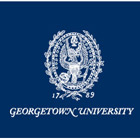- News and articles
- Find usIDP AustraliaIDP BahrainIDP BangladeshIDP CambodiaIDP CanadaIDP ChinaIDP EgyptIDP GhanaIDP Hong KongIDP IndiaIDP IndonesiaIDP IranIDP JordanIDP KenyaIDP KoreaIDP KuwaitIDP LebanonIDP MalaysiaIDP MauritiusIDP Middle EastIDP NepalIDP New ZealandIDP NigeriaIDP OmanIDP PakistanIDP PhilippinesIDP Saudi ArabiaIDP SingaporeIDP Sri LankaIDP Taiwan, ChinaIDP ThailandIDP TurkeyIDP UAEIDP VietnamIDP Corporate
- Social
- English
- Where we operate
- Courses
- Scholarships
- IELTS
- About IDP
- Student Essentials
- News and articles
- Find us
- Find us
- Find nearest IDP offices
- IDP Australia
- IDP Bahrain
- IDP Bangladesh
- IDP Cambodia
- IDP Canada
- IDP China
- IDP Egypt
- IDP Ghana
- IDP Hong Kong
- IDP India
- IDP Indonesia
- IDP Iran
- IDP Jordan
- IDP Kenya
- IDP Korea
- IDP Kuwait
- IDP Lebanon
- IDP Malaysia
- IDP Mauritius
- IDP Middle East
- IDP Nepal
- IDP New Zealand
- IDP Nigeria
- IDP Oman
- IDP Pakistan
- IDP Philippines
- IDP Saudi Arabia
- IDP Singapore
- IDP Sri Lanka
- IDP Taiwan, China
- IDP Thailand
- IDP Turkey
- IDP UAE
- IDP Vietnam
- IDP Corporate
- Social
- Language Switcher
- IDP Education /
- Colleges and Universities /
- United States /
- Georgetown University /
- Master of Science in Foreig...

Master of Science in Foreign Service - Science, Technology, and International Affairs
At GEORGETOWN UNIVERSITY

Location
United States
Qualification
Masters Degree
Duration
4 Semester(s)
Next intake
27 August 2025
Course info
Now more than ever, science and technology are at the heart of international affairs. The Science, Technology and International Affairs (STIA) concentration equips students with the knowledge, skills and confidence to engage with the challenges and opportunities this presents. Remember that STIA is STEM designated as of 2023. STIA concentrators must take the following courses: One Gateway course: MSFS 505: Science Policy Matters: Introduction to the Study of Science, Technology and International Affairs (further details below). Professor Theresa Sabonis-Helf will be leading the gateway course to be offered each spring semester.
One tech competence course from a list of approved natural science, data science or computer science courses. In some cases, students with the necessary prerequisites may take courses offered in other programs of the university (3500 or above) subject to departmental approval. Students who majored or minored in biology, chemistry, physics, computer science or engineering as undergraduates may petition to the concentration chair to be exempted from this requirement, and take an additional elective course instead. Additionally, students must take four additional courses selected from a list of approved electives, three of which must be in one of the three designated subfields: Energy and the Global Environment, Innovation and Emerging Technologies and Science, Technology and International Strategy.
- Scholarships
- Internships
Course fees are indicative and should be used as a guide. to get an accurate price.
Duration: 4 Semester(s)
| Intake | Location |
|---|---|
| Spring (January), 2025 | Washington |
| Fall (August), 2025 | Washington |
| Fall (August), 2026 | Washington |
| Spring (January), 2026 | Washington |
Application Deadline
The application deadline isn't available Speak to an IDP counsellor for more detailed information
Further information
If you aren't eligible for the above entry requirements, you might ant to explore pathway options at Georgetown University. If you want to find out more, speak to our counsellors.
THE World Ranking
201st / 1250
THE World RankingWhat our students think
We’ve haven’t received any reviews for this institution yet.
Recommended for you
- THE World Ranking:112
- Graduate Certificate
- College Park , United States
- Next intake:08/2025
- Entry Score: IELTS 7.0
- USD16245 (2025)
- Masters Degree
- Idaho Falls , United States
- Next intake:05/2025
- Entry Score: IELTS 6.5
- USD29540 (2025)
- Masters Degree
- Provo , United States
- Next intake:06/2025
- Entry Score: IELTS 7.0
- USD16192 (2025)
- Masters Degree
- Pittsburg , United States
- Next intake:08/2025
- Entry Score: IELTS 6.0
- USD20022 (2025)
- THE World Ranking:251
- Masters Degree
- STONY BROOK , United States
- Next intake:05/2025
- Entry Score: IELTS 6.5
- USD23100 (2025)
- THE World Ranking:251
- Masters Degree
- STONY BROOK , United States
- Next intake:05/2025
- Entry Score: IELTS 6.5
- USD23100 (2025)
- THE World Ranking:251
- Masters Degree
- STONY BROOK , United States
- Next intake:05/2025
- Entry Score: IELTS 6.5
- USD23100 (2025)
- THE World Ranking:251
- Masters Degree
- STONY BROOK , United States
- Next intake:05/2025
- Entry Score: IELTS 6.5
- USD23100 (2025)
Your action plan
Step 1
Shortlist your courses
Choose the best three courses you’re most likely to pursue.
Step 2
Check your eligibility
Get an instant in-principle offer for courses with the IDP FastLane tag.
Step 3
Apply through IDP Live
Fill out the form once and use it to apply to multiple courses.
How does IDP FastLane work?
With the FastLane 'Offer in Principle', you'll know in minutes if you'll be accepted!
Select an institution and course
Create your academic profile
Submit your application for an 'Offer in Principle'
Your chosen institution(s) will send you a decision in minutes!
Get ready to apply with an expert counsellor




